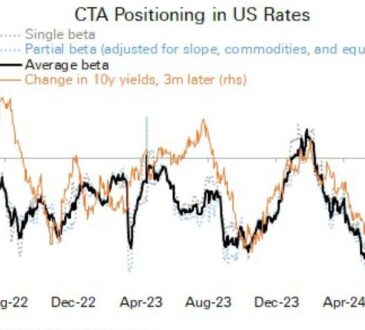
A. Can Inci, Ph.D., a Bryant professor of Finance, recently published his book Contemporary Issues in Quantitative Finance, an introduction to financial engineering for upper-level finance students and a cutting-edge reference for financial service practitioners. Bryant News caught up with Inci to talk about his book and the financial innovations contained within. The conversation began with Inci relaying the story of President Harry Truman, who famously asked to be sent a one-handed economist to provide decisive economic advice without saying, “On the one hand, this…but on the other hand, that…”
Inci reflected on Truman’s situation when discussing the merits and risks of buying and trading cryptocurrencies. “Unfortunately, in life, there are pros and cons. Decisions are not so simple,” said Inci, a veritable two-handed man, “but I am happy to provide an objective view.”
Can you provide us with a brief history of cryptocurrency?
Cryptocurrency is a highly risky class of digital assets that started to appear in the mid-2000s. It began on the dark web to make purchases that would bypass exchange rate conversions, taxes, and government regulations. Over time there was a push to move away from nefarious purposes and make cryptocurrencies more legitimate, marketable, and valuable for the global community. By eliminating frictions — i.e., exchange rate conversions and transaction costs — users could purchase anything, anywhere around the world, using one currency: cryptocurrency. Governments still struggle to regulate cryptocurrencies, but their popularity continues, often for the wrong reasons.
Why are people so drawn to cryptocurrencies?
There are three main reasons people are interested in cryptocurrencies. First, as a medium of exchange. Instead of the U.S. dollar, for example, you would use cryptocurrency. Unfortunately, this will not work, at least not for the near future, because the value of cryptocurrency is so volatile. To be used to purchase goods and services, the medium of exchange needs to be stable, and cryptocurrencies will not stabilize or mature in the foreseeable future.
The second reason people are interested in cryptocurrencies is as a source of wealth generation and an investment opportunity, which is a double-edged sword. Investing a large percentage of one’s wealth in such a risky opportunity is not a good idea. You will not get rich quickly by investing in cryptocurrencies. In fact, because these assets are so risky, you may lose substantially.
The augmentation of a traditional portfolio of stocks and bonds with a modest ratio of cryptocurrencies is the third and best reason to invest. This type of enhanced portfolio can do an excellent job of creating higher profits and lowering risks. Of course, the cryptocurrency market is risky, but the risk structure differs from traditional securities like stocks and bonds. For example, if the stock market and bond market are down, the crypto market might be going up. So, because investments are more diversified, it simultaneously helps protect your portfolio and provides better returns.
Why are cryptocurrencies so volatile?
Nothing is backing up the value of cryptocurrencies. Traditional securities, like stocks, are backed by the company’s assets, and the borrower’s credit, whether a company or the government, supports the value of bonds. Cryptocurrencies derive their value from notoriety, popularity, and a relatively short supply that drives demand.
What advice would you give to someone interested in investing in cryptocurrencies?
Because Cryptocurrencies are still highly volatile, investing in well-known brands like Bitcoin is best. A good financial advisor should suggest diversifying your portfolio with cryptocurrencies, but not too much.
I have experimented with investing in cryptocurrencies so I could advise my students. But, while I saw my small investment quadruple very quickly, it came crashing down, proving their risk. So, be cautious of friends pushing you to invest because, if you do a little digging, you might find they are trying to drive up the value of their coins by increasing the demand.
What other significant trends are on the horizon in finance?
The finance profession is moving toward machine learning, artificial intelligence (AI), and manipulating, understanding, and presenting big data.
The human element will always be a part of machine learning and AI, no matter how complicated and technical the profession becomes. Humans don’t always act rationally. In fact, we frequently act irrationally. And that’s okay; sometimes, irrationality is the way to go for a person. AI will never be able to detect when it is supposed to act rationally and when it is supposed to mirror irrational human behavior. So, while machines may provide the best portfolio investment options, they will never be able to detect the human perspective. And for that reason, humans will always be a part of the investment structure.
In the future, the best combination will be the AI system choosing derivative models and portfolios with the financial advisor as the connection with the client.




